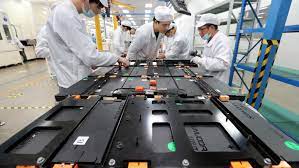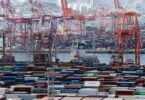BEIJING (Reuters): China will require export permits for some graphite products from Dec. 1 to protect national security, the commerce ministry said on Friday, as it faces growing challenges from foreign governments over its manufacturing dominance.
Graphite is used in the batteries for electric vehicles (EV) and China is the world’s top producer, providing 67% of global supplies of the natural form, according to the U.S. Geological Survey.
It also refines more than 90% of the world’s graphite into material used in virtually all EV battery anodes.
China is enacting the curbs at the same time that foreign governments are increasing their pressure on its companies over their industrial practices.
The European Union is weighing levying tariffs on Chinese-made EVs, arguing they unfairly benefit from subsidies. Also, the U.S. government earlier this week widened curbs on Chinese companies’ access to semiconductors, including stopping sales of more advanced artificial intelligence chips made by Nvidia.
Under the new restrictions announced on Friday, China will require exporters of two types graphite to apply for permits, including high-purity, high-hardness and high intensity synthetic graphite material, and natural flake graphite and its products.
Three types of “highly sensitive” graphite items had already been under temporary controls, the commerce ministry said, and are included in the new list.
The curbs are similar to those in place since Aug. 1 for two chip-making metals, gallium and germanium. The restrictions have slashed exports of the metals from China in recent months.
New investments in the United States and Europe are designed to challenge China’s stranglehold on graphite but industry experts expect it to be an uphill battle.
Top buyers of graphite from China include Japan, India and South Korea, according to Chinese customs data.







